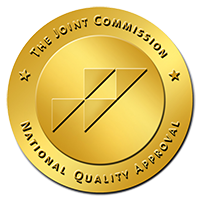
For many reasons, I’m always glad to bid February goodbye and welcome the march toward spring. March is also National Nutrition Month®️ when the experts at the Academy of Nutrition and Dietetics walk us toward a diet that can help put spring in our steps.
This year’s theme is “Personalize Your Plate.” I like that. It means that we have choices—within the recommendations for our age group and sex—to choose meals that satisfy our personal and cultural preferences. Here’s a quiz to get us thinking about how we might create a healthier plate:
1. A reliable place to get the most up-to-date recommendations for what and how much to eat is a) your hairdresser; b) the guy next door; c) 2020-2025 Dietary Guidelines for Americans. Answer: C. Download it for free at https://www.dietaryguidelines.gov/resources/2020-2025-dietary-guidelines-online-materials.
2. If you are like 80% of Americans, you diet is lacking in a) a really good zero-calorie cheesecake; b) fruits and vegetables; c) high calcium foods. Answer: b and c.
3. Most American eat a) too many salads; b) too few whole grains; c) not enough fiber and too much sugar. Answer: b and c.
4. Beans, peas and lentils are unique because a) they count as a protein and vegetable; b) they are a zinc-rich food that can be given to babies as young as six months; c) they are one of the best sources of dietary fiber for your money. Answer: All are correct!
5. Children and teens have a critical need for calcium-rich foods and beverages because a) 90% of a girl’s lifetime bone stores are deposited by her 18th birthday; b) boys reach 90% of their lifetime bone supply by age 20; c) a lack of calcium-rich foods in childhood and adolescence can lead to weak bones in later years. Answer: All are correct.
6. Folate (a key nutrient in beans and green leafy vegetables) and folic acid—a B-vitamin in fortified breads, cereals and dietary supplements—is important for all women capable of becoming pregnant because a) a deficiency of this vitamin can lead to serious birth defects; b) beans and green leafy vegetables make you more attractive to the opposite sex; c) young females need this nutrient before and in the early weeks of pregnancy to prevent birth defects. Answers: a and c.
7. Protein-rich foods are extremely important to people of all ages but especially to people 60 years and older because: a) protein helps strengthen bones as well as muscles; b) older people need a source of protein such as seafood, poultry, lean meat, eggs or beans at each meal; c) many older men and women don’t get enough protein in their daily diet. Answer: All are correct.
(Barbara Intermill is a registered dietitian nutritionist and certified diabetes care specialist at Box Butte General Hospital. She is the author of Quinn-Essential Nutrition: The Uncomplicated Science of Eating. Email bquinn@bbgh.org.)



